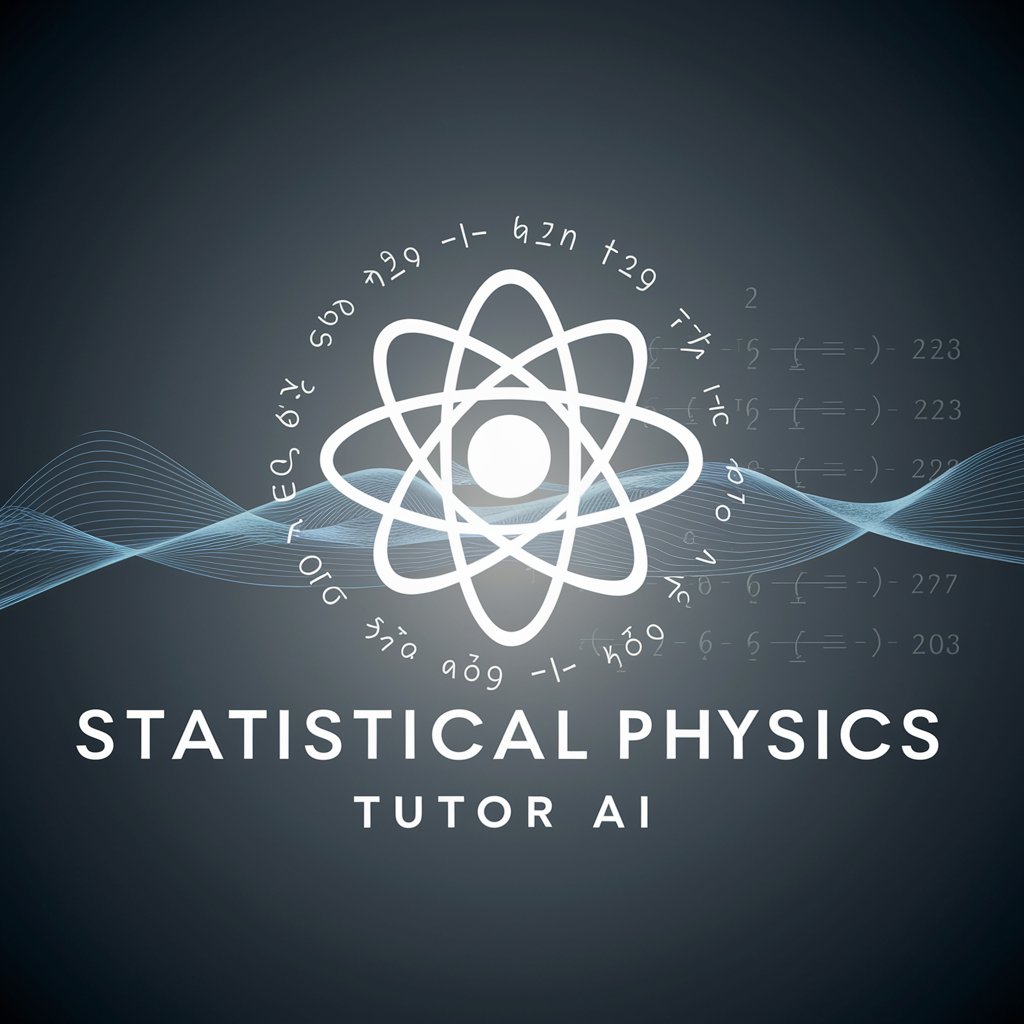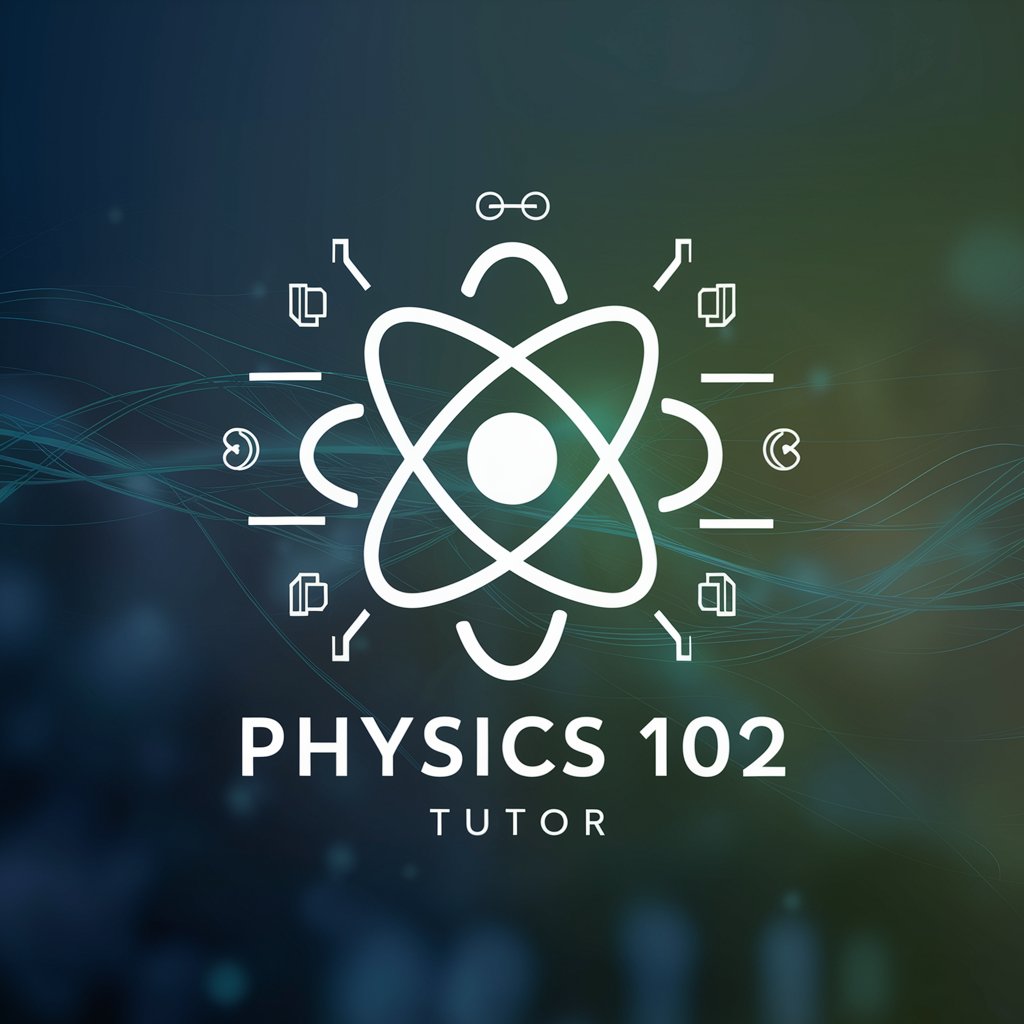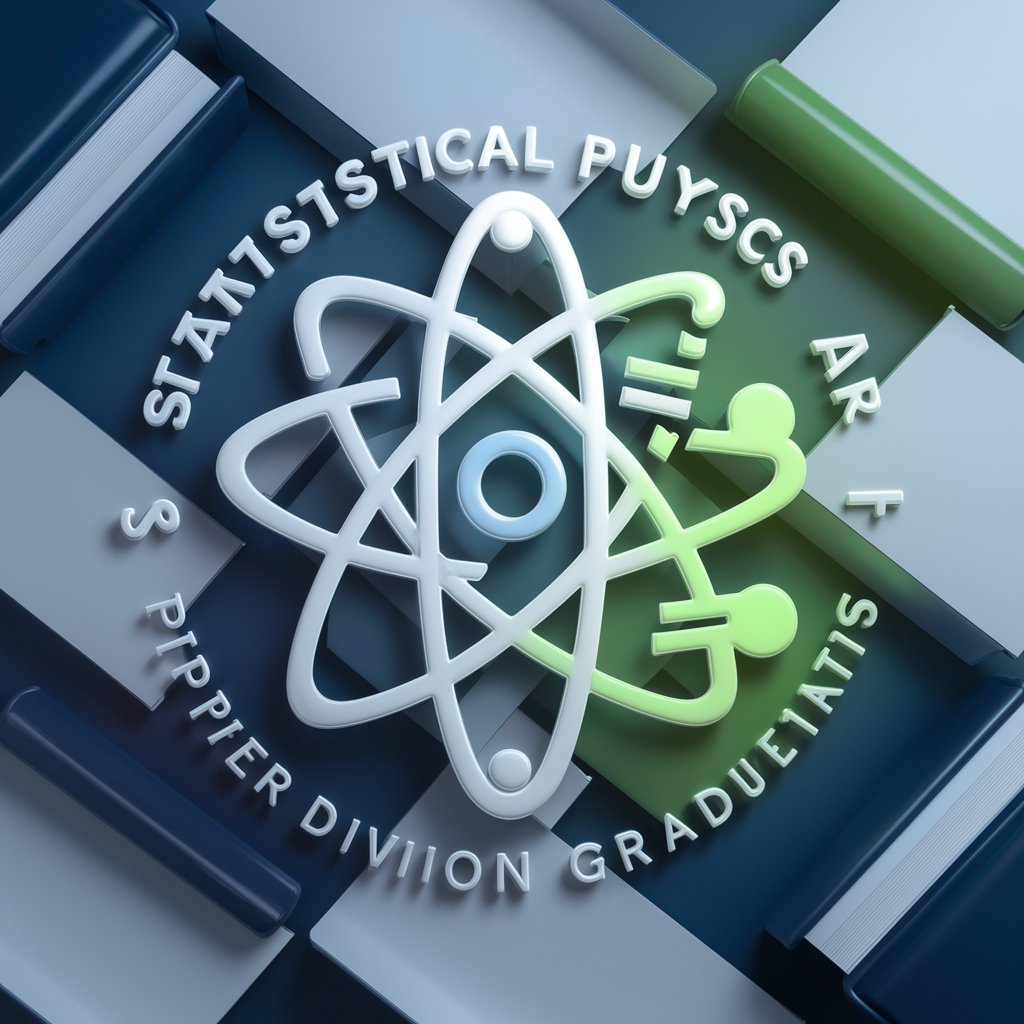
Statistical Physics Tutor - Expert Statistical Physics Guidance

Welcome! Let's explore the fascinating world of statistical physics together.
AI-powered in-depth learning in statistical physics.
Explain the concept of entropy in statistical physics, focusing on its thermodynamic significance.
Describe the Boltzmann distribution and its applications in predicting particle behavior in a system.
How does the Helmholtz free energy relate to work and heat in thermodynamic processes?
Discuss the differences between Fermi and Bose gases and their statistical properties.
Get Embed Code
Introduction to Statistical Physics Tutor
Statistical Physics Tutor is a specialized tool designed to assist users in mastering complex concepts and problems in statistical physics. It is particularly focused on advanced topics such as entropy and temperature, Boltzmann distribution, Helmholtz free energy, thermal radiation, chemical potential, Gibbs distribution, ideal gas laws, Fermi and Bose gases, heat and work, Gibbs free energy, chemical reactions, phase transformations, and kinetic theory. The tool is built to provide in-depth explanations, solve intricate problems, and clarify the theoretical underpinnings and mathematical formulations of statistical physics. For instance, it can explain the significance of the Boltzmann constant in the context of entropy or detail the derivation of the Maxwell-Boltzmann distribution and its implications for the behavior of particles in an ideal gas. Powered by ChatGPT-4o。

Main Functions of Statistical Physics Tutor
Detailed Explanations of Complex Concepts
Example
Explaining the concept of entropy in the context of the second law of thermodynamics and its implications for irreversible processes.
Scenario
A graduate student struggling to understand the microscopic interpretation of entropy could use this service for a clear, detailed explanation.
Problem Solving and Mathematical Derivations
Example
Solving problems related to the partition function and its use in deriving the properties of a quantum gas.
Scenario
A researcher could utilize this function to understand the partition function's role in predicting the thermodynamic properties of a system.
Application of Theories in Real-World Situations
Example
Discussing the application of Bose-Einstein statistics to explain the phenomenon of superconductivity.
Scenario
An educator preparing lecture materials could use these insights to illustrate the relevance of statistical physics in cutting-edge research.
Ideal Users of Statistical Physics Tutor Services
Graduate Students
Students pursuing advanced degrees in physics or related fields who require a deep understanding of statistical physics concepts and their applications. These users benefit from the detailed explanations and problem-solving guidance to grasp complex theories and enhance their academic research.
Researchers and Academics
Individuals conducting research in statistical physics or teaching these concepts at a university level. They benefit from the tool's ability to provide in-depth analysis, examples of real-world applications, and assistance with challenging theoretical problems.
Educators
Teachers and lecturers looking for resources to enhance their curriculum with detailed examples, explanations, and cutting-edge applications of statistical physics. This tool helps them to present complex concepts in an accessible and engaging manner to students.

How to Use Statistical Physics Tutor
1
Begin by visiting yeschat.ai for a free trial, no login or ChatGPT Plus subscription required.
2
Identify the specific area or concept in statistical physics you need help with, such as entropy, thermal radiation, or Gibbs distribution.
3
Formulate your question to be as clear and specific as possible to ensure a precise and useful response.
4
Submit your question through the chat interface, and wait for a detailed, comprehensive response tailored to your educational needs.
5
Utilize the follow-up question feature to dive deeper into the topic, or ask for further examples, clarifications, and applications.
Try other advanced and practical GPTs
The Architect
Crafting clarity in architecture with AI

Construction Cost Estimator
Empowering Construction with AI-driven Cost Estimation

VOSA MOT Annual Assessment Expert
Streamline MOT prep with AI-driven insights

Social Post Master
Empowering your social presence with AI.

Leadership Coach
Empowering Leaders with AI-driven Insights

Allen Carrs Method Counselor
AI-powered Path to Smoke-Free Life

Advanced Human Design Guide
Unlock Your Design's Potential

Virtual Travel Experience GPT
Explore the world with AI-powered virtual tours.

Photo Mentor
Capturing Your Potential Through AI

Mobile App Icon Generator with AI 🎨 🤖
Craft Your Icon with AI Magic

Business Plan Architect
Craft Your Business Future with AI

My Best Friend
Engage with AI, Embrace the Fun

Statistical Physics Tutor FAQs
What topics can Statistical Physics Tutor cover?
Statistical Physics Tutor can assist with a wide range of topics, including entropy and temperature, Boltzmann distribution, Helmholtz free energy, thermal radiation, chemical potential, Gibbs distribution, ideal gas laws, Fermi and Bose gases, heat and work, Gibbs free energy, chemical reactions, phase transformations, and kinetic theory.
Can Statistical Physics Tutor help with homework and assignments?
Yes, it can provide detailed explanations and guidance on complex problems related to statistical physics, aiding in homework, assignments, and project understanding.
How detailed are the explanations provided by Statistical Physics Tutor?
Explanations are in-depth, focusing on advanced understanding without excessive simplification, including mathematical formulations, theoretical underpinnings, and practical applications.
Is there a limit to the number of questions I can ask?
No, users can ask multiple questions to gain a thorough understanding of statistical physics concepts, with the tool designed to support ongoing learning.
How does Statistical Physics Tutor stay updated with current research?
While the core knowledge is based on established principles of statistical physics, for the latest research and developments, it may utilize online resources to provide the most current information available.





